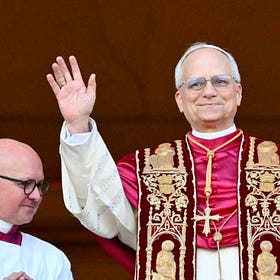Tuesday's Assorted Links
Toy prices, reading to children, lab-grown diamonds, starter home prices, and thrifting
Hi y’all! Here are five stories from this week that contain some neat applications of economic principles or are related to teaching:
Mattel, the maker of Barbie dolls and Hot Wheels cars, warned that it plans to raise prices on some toys in response to tariffs [NBC News]
Less than half of parents find it fun to read aloud to their children [The Guardian]
De Beers to close its lab-grown diamond business as lab-grown prices collapse and demand fades [Fashion Network]
In 233 US cities, a starter home will cost you more than $1 million, up from 85 cities just five years ago [Zillow]
Sellers of secondhand clothes prepare for tariffs to give their businesses a boost [Associated Press]
The election of Pope Leo XIV made global headlines last week. But what’s just as fascinating as who was chosen is how he was picked. Unlike most elections, the College of Cardinals doesn’t rely on a simple majority. Instead, they require a two-thirds vote. This week’s piece explores how voting rules reflect a tradeoff between internal costs (how hard it is to reach an agreement) and external costs (what happens when the group gets it wrong).
Why Picking a Pope Takes More Than a Majority
The Catholic Church just made history: a cardinal from the United States has been elected pope for the first time ever. Pope Leo XIV is relatively young by papal standards, and his selection was fairly quick. Much of the initial attention has been …
Are you an educator looking for ways to introduce this week’s newsletter into your classroom? Sign up for the Classroom Edition of Monday Morning Economist to get assessments and lesson plans delivered straight to your inbox every week.




